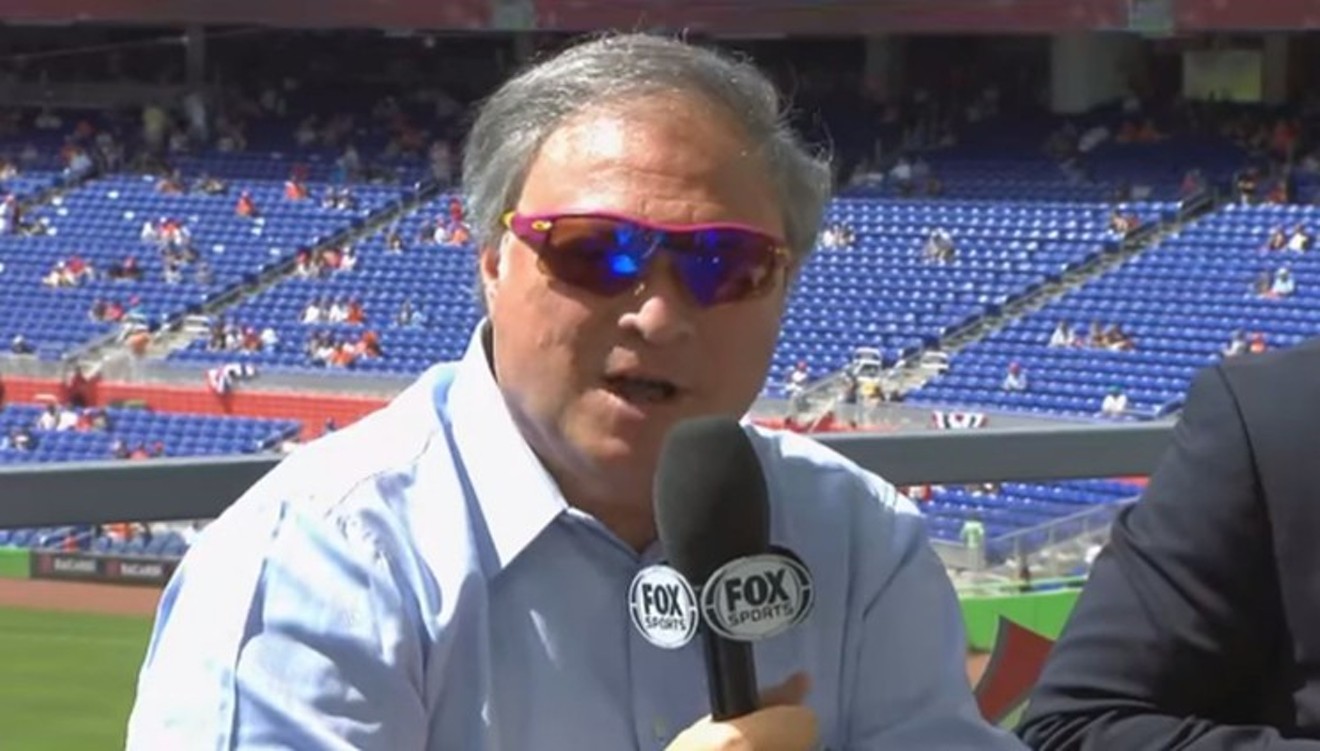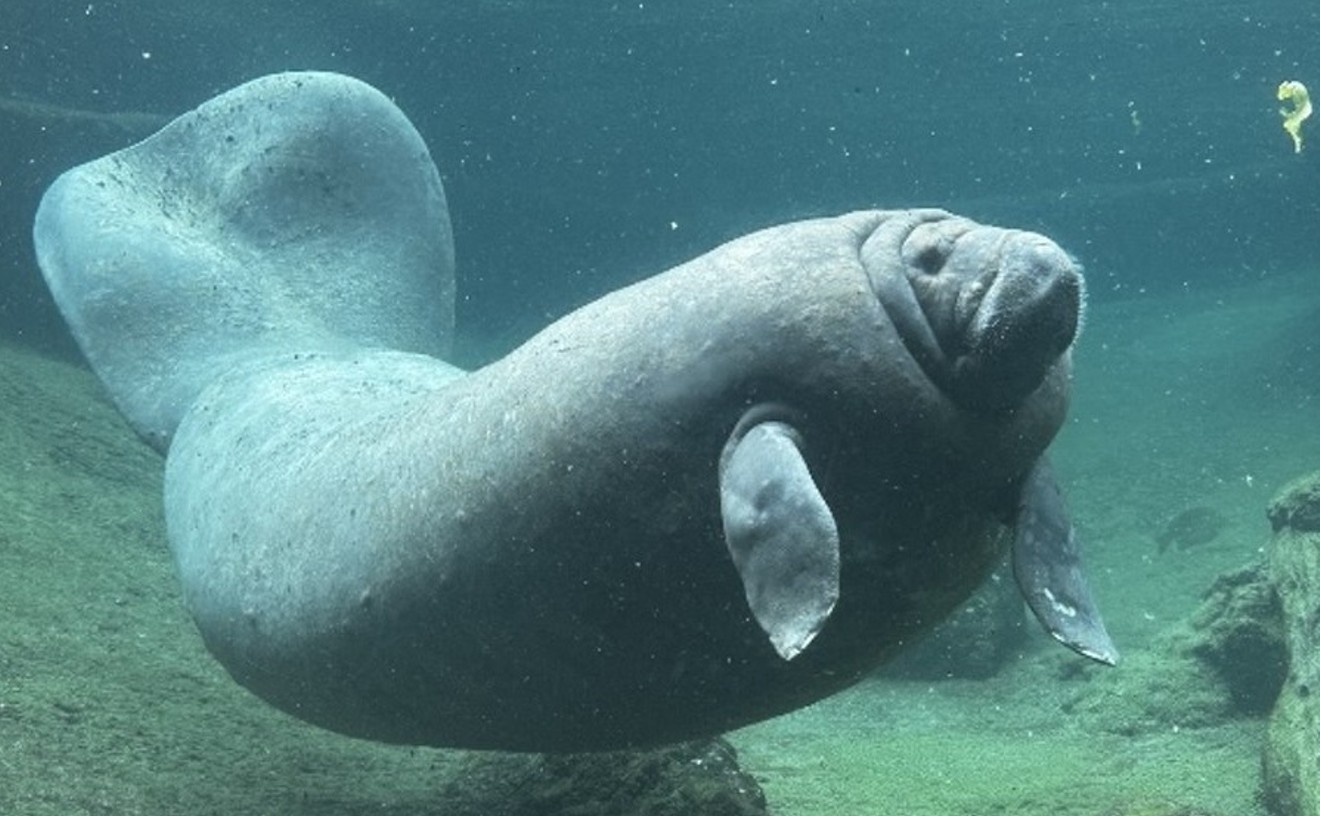But Loria always knew he'd skirt even that tiny modicum of payback to the Miamians his team president openly ridiculed as mouth-breathing morons.The agreement conveniently gave Loria some Biscayne Bay-size loopholes to slide through to avoid ponying up.
Now, with a fresh $1.2 billion in his pocket courtesy of Derek Jeter's new ownership group, Loria has informed the county he intends to share exactly zero dollars with the taxpayers who helped pad his bank accounts.
"I can confirm that the former owners do not believe they owe Miami-Dade County or the City of Miami any money," says Michael Hernández, Miami-Dade Mayor Carlos Gimenez's spokesperson, who earlier tacitly confirmed the news on Twitter after the Miami Herald reported it:
Loria paid a hilariously small price for the Marlins. His exact cash investment is surprisingly difficult to nail down because of the circuitous route he took to obtain the team: He began as a minority owner of the Montreal Expos, next strong-armed Major League Baseball in 2002 into buying the team for $120 million, and then bought the Marlins from then-owner John Henry for $158 million (with the difference as an interest-free loan from Henry).$0
— Mike Hernández (@HernandezMA5) February 2, 2018
Fifteen years later, Loria took $1.2 billion from Jeter's group. There's little question the absurdly one-sided stadium deal helped inflate that sale price. In 2008, just before the deal passed, Loria valued the Marlins at only $500 million.
So how can he get away with sharing none of that with taxpayers? Well, the way then-Miami-Dade Mayor Carlos Alvarez and his team of Marlins-backing cronies wrote the deal required Loria to share a percentage of the profits from a sale, with that percentage decreasing each year after the ballpark opened. Under those terms, Loria should have to fork over 5 percent of the sale price.
But the county also agreed to provisions that let Loria mark down the value of the sale based on closing costs and debts. The ex-owner's accountants — who, it's worth noting, were already caught lying to county leaders when Deadspin posted the team's financials during the stadium negotiations — are surely busy marking down every possible exemption.
It's not clear exactly what options the city and the county have at their disposal now. After the sale, they collaborated on an audit to determine how much of the sale profits they think they're owed — that audit has been completed but not publicly released. (New Times has requested the details.)
The worst part of this con is its predicability. Anyone who paid the slightest attention to Loria's epic swindle knew the eventual outcome.












